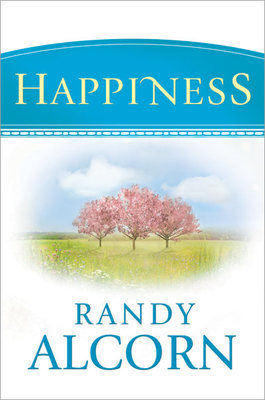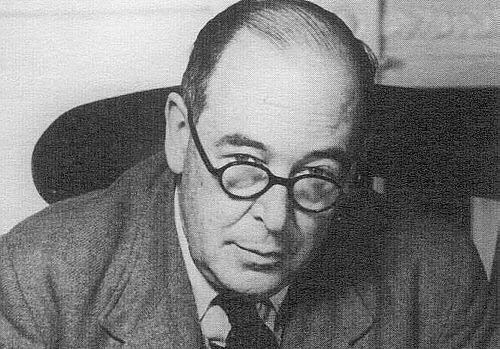Randy Alcorn's Blog, page 157
November 13, 2015
Insights from a Kenyan Brother: No One Cried at My Friend’s Funeral
Media Associates International (MAI) is a great ministry that equips and encourages talented men and women all over the world with a passion for producing Christian literature for their own people. Believers in many other countries do not have access to Christian literature in their own unique voice that is so readily available to us in the US. We want to support their efforts so Eternal Perspective Ministries has supported MAI, and I recommend you consider supporting it, too. I appreciated this powerful and insightful message from one of their blog posts:
No One Cried at My Friend’s Funeral
By John Gathuku, Kenya
Yesterday we lay to rest the man who literally took me to church. No one cried at the funeral; his wife and children didn’t shed a tear.
He was our neighbor and a faithful choir member at a church in our hometown. He brought me along when he went for choir practice. We had a unique father-like friendship. On Sundays he dropped me off at children’s Sunday School. That was 30 years ago! I am now a grown man with three children. We kept in touch once in a while over the years and were always joyful to meet.
My friend was a super achiever. He pursued a bachelor’s degree at age 45 and was about to finish a doctorate at 63. His determination and tenacity was admirable. He uplifted his extended family economically and financially assisted many other people.
However something was amiss…
November 11, 2015
Is There a Difference Between Happiness and Joy?

An ungrounded, dangerous separation of joy from happiness has infiltrated the Christian community. The following is typical of the artificial distinctions made by modern Christians:
Joy is something entirely different from happiness. Joy, in the Biblical context, is not an emotion. . . . There is a big difference between joy and happiness. Happiness is an emotion and temporary; joy is an attitude of the heart.[i]
Judging from such articles (and there are hundreds more out there), you’d think the distinction between joy and happiness is biblical. It’s not.
John Piper writes, “If you have nice little categories for ‘joy is what Christians have’ and ‘happiness is what the world has,’ you can scrap those when you go to the Bible, because the Bible is indiscriminate in its uses of the language of happiness and joy and contentment and satisfaction.”[ii]
Here’s a sampling of the more than one hundred Bible verses in various translations that use joy and happiness together:
For the Jews it was a time of happiness and joy, gladness and honor. (Esther 8:16, NIV)
I will turn their mourning into joy. . . and bring happiness out of grief. (Jeremiah 31:13, HCSB)
Give your father and mother joy! May she who gave you birth be happy. (Proverbs 23:25, NLT)
The relationship between joy and happiness in these passages refutes two common claims: (1) that the Bible doesn’t talk about happiness, and (2) that joy and happiness have contrasting meanings. In fact, the Bible overflows with accounts of God’s people being happy in him.
Depicting joy in contrast with happiness has obscured the true meaning of both words. Joyful people are typically glad and cheerful—they smile and laugh a lot. To put it plainly, they’re happy!
Opposition to the word happiness is a recent development in the church.
There’s a long rich, history of equating joy with happiness in Christ. For example, Jonathan Edwards cited John 15:11 (“that [Jesus’] joy might remain in you,” KJV) to prove this point: “The happiness Christ gives to his people, is a participation of his own happiness.”
Charles Spurgeon said, “May you so come, and then may your Christian life be fraught with happiness, and overflowing with joy.”[iii] Spurgeon’s views of happiness and joy, evident in hundreds of his sermons, are completely contrary to the artificial wall the contemporary church has erected between the two.
In stark contrast to believers prior to the twentieth century, many modern Christians have portrayed happiness as, at best, inferior to joy and, at worst, evil. Oswald Chambers (1874–1917), whom I greatly respect, is one of the earliest Bible teachers to have spoken against happiness. Chambers wrote, “Happiness is no standard for men and women because happiness depends on my being determinedly ignorant of God and His demands.”[iv]
After extensive research, I’m convinced that no biblical or historical basis exists to define happiness as inherently sinful. Unfortunately, because Bible teachers such as Chambers saw people trying to find happiness in sin, they concluded that pursuing happiness was sinful.
Chambers, a truly great Bible teacher and Christ-follower, claimed that “there is no mention in the Bible of happiness for a Christian.” Likewise, it’s common to hear people make claims like this: “Joy is in 155 verses in the KJV Bible, happiness isn’t in the Bible.”[v]
The problem with these statements is that they simply aren’t true. Happy is found in the King James Version, which Chambers used, a total of twenty-nine times. For example, Jesus told his disciples, “If ye know these things, happy are ye if ye do them” (John 13:17). The apostle Paul wrote these words to Christians: “Happy is he that condemneth not himself in that thing which he alloweth” (Romans 14:22).
Just as holy speaks of holiness and joyful speaks of joy and glad speaks of gladness, obviously happy speaks of happiness!
Is it true that joy is not an emotion?
The idea that “joy is not an emotion” (a statement that appears online more than 17,000 times) promotes an unbiblical myth.
A hundred years ago, every Christian knew the meaning of joy. Today, if you ask a group of Christians, “What does joy mean?” most will grope for words, with only one emphatic opinion: that joy is different from happiness. This is like saying that rain isn’t wet or ice isn’t cold. Scripture, dictionaries, and common language don’t support this separation.
Some claim that joy is a fruit of the Spirit, not an emotion. But in Galatians 5:22, love and peace surround the word joy. If you love someone, don’t you feel something? What is peace if not something you feel?
I googled “define joy,” and the first result was this dictionary definition: “a feeling of great pleasure and happiness.” This definition harmonizes with other dictionaries and ordinary conversations, yet it contradicts countless Christian books and sermons.
God created not only our minds but also our hearts. It’s ill advised to pit happiness and joy against each other rather than embracing the emotional satisfaction of knowing, loving, and following Jesus.
Happiness is a synonym for joy.
Consult English dictionaries and you’ll see how contrived this supposed contrast between joy and happiness is. The first definition of joy in Merriam-Webster’s dictionary is “a feeling of great happiness.”[vi] The American Heritage Dictionary defines joy as “intense and especially ecstatic or exultant happiness.”[vii]
What about Christian dictionaries? The Evangelical Dictionary of Biblical Theology defines joy as “happiness over an unanticipated or present good.”[viii] The Dictionary of Bible Themes defines happiness as “a state of pleasure or joy experienced both by people and by God.”[ix] Happiness is joy. Joy is happiness. Virtually all dictionaries, whether secular or Christian, recognize this.
Consider our common expressions:
“He jumped for joy.”
“He is our pride and joy.”
“I wept for joy.”
According to the vast majority of the usages of these two words in (1) English history, (2) English literature, (3) Bible translations, and (4) English dictionaries, the words have far more in common with each other than not.
Modern distinctions between happiness and joy are completely counterintuitive.
For too long we’ve distanced the gospel from what God created us to desire—and what he desires for us—happiness.
We need to reverse the trend. Let’s redeem the word happiness in light of both Scripture and church history. Our message shouldn’t be “Don’t seek happiness,” but “You’ll find in Jesus the happiness and joy you’ve always longed for.”
Learn more in Randy's book Happiness.
[i] Brian Cromer, “Difference between Joy and Happiness,” Briancromer.com (blog), April 28, 2008.
[ii] John Piper, “Let Your Passion Be Single,” Desiring God, November 12, 1999.
[iii] Spurgeon, “A Happy Christian” (Sermon #736).
[iv] Oswald Chambers, Biblical Ethics (Great Britain: Oswald Chambers Publications, 1947), 14.
[v] “In Your Opinion, What’s the Difference between Joy and Happiness?” Yahoo! Answers.
[vi] Merriam-Webster Unabridged Dictionary (Britannica Digital Learning, 2014), s.v. “joy."
[vii] American Heritage Dictionary of the English Language, 4th ed., s.v. “joy.”
[viii] Evangelical Dictionary of Biblical Theology, ed. Walter A. Elwell (Grand Rapids, MI: Baker, 1996), s.v. “joy.”
[ix] Martin H. Manser, Dictionary of Bible Themes: The Accessible and Comprehensive Tool for Topical Studies (London: Martin Manser, 2009), s.v. “happiness.”
photo credit: Осень в миниатюре via photopin (license)
November 9, 2015
When Social Media Become Addictive

There’s Facebook, Twitter, Pinterest, Instagram, Google+, LinkedIn…and that’s not counting email or YouTube or other online time-consumers that aren’t social media but which can call out to us daily.
There’s nothing wrong with any of these. Used selectively and wisely, in moderation, they can accomplish a good purpose—maybe you get updates from family and people you care about, or perhaps prayer requests and thoughts and Scripture quotes that can help you live with a Christ-centered perspective. And there’s nothing wrong with entertainment that’s positive and pure.
But when social media and online time is out of control, like television watching or talk radio or sports or stamp collecting, it can become an addiction—just like anything else. Those who are addicted to Facebook, for instance, and use it to relieve boredom imagine it’s a solution to their unhappiness. Sadly, the addiction brings the very unhappiness they’re intended to relieve.
Ed Welch, author of the excellent book Addictions: A Banquet in the Grave, writes, “Your addictions are linked to your relationship to God more than you realize. You can’t ignore that.”
We need to understand that our thirst for happiness and excitement and pleasure can ultimately only be fulfilled in Jesus Christ: “in your presence there is fullness of joy; at your right hand are pleasures forevermore” (Psalm 16:11).
I appreciated this article by Tony Reinke that explores the consequences of boredom-induced addiction to Facebook:
Facebook Obsession and the Anguish of Boredom
Facebook has never been more addictive.
In 2013, it was 63% of Facebook users who checked in daily. In 2014, that number shot up to 70%. If you check Facebook day after day, you join over 864 million others with the same compulsive routine.
For many of us, Facebook is a kind of addiction, a default habit that is now rewiring our brains.
November 6, 2015
The One Thing My Daughter Remembered Most about My Parenting
 Some years ago, I sat with my daughters at a wonderful father/daughter banquet at our church. Someone at the table asked my youngest daughter, Angela, what I’d done that made the biggest impression on her. I had no idea what she would say, but of course I hoped for something spectacular. :)
Some years ago, I sat with my daughters at a wonderful father/daughter banquet at our church. Someone at the table asked my youngest daughter, Angela, what I’d done that made the biggest impression on her. I had no idea what she would say, but of course I hoped for something spectacular. :)
I’ll never forget what she shared because it was so powerful to me. She said, “I remember one time when dad was harsh with me. Then a few minutes later he came back into my room, and he cried and asked my forgiveness. I’ve never forgotten that.”
That’s what Angie remembered as having the most impact on her—something I had actually done wrong, and then asked her forgiveness for! I thought, Isn’t that interesting? It shows how being a good example isn’t limited to doing great and magnificent things. Sometimes it’s when we admit we did wrong things.
This is God’s grace—He can redeem even our failures! (Provided we recognize and confess them to our children.) Saying "I'm sorry, please forgive me," may teach your children more than you would have by never failing, and far more than pretending you never fail.
How humbling and also encouraging to know that parents who admit their shortcomings don’t lose their children’s trust. They gain it.
Following are some parenting books I would recommend on parenting: Gospel Powered Parenting by Bill P. Farley, Shepherding A Child’s Heart by Ted Tripp (I read Tripp’s book when our girls were young, and I think it’s great), and What the Bible Says about Parenting by John MacArthur.
November 4, 2015
Seeking to Be Happy in Christ: My Interview with Bible Gateway

This interview with Jonathan Petersen, manager of marketing for Bible Gateway, was originally posted on biblegateway.com ,
Your book Happiness challenges the idea that God wants his followers to be holy but not happy. What do you mean?
Holiness doesn’t mean abstaining from pleasure; holiness means recognizing Jesus as the source of life’s greatest pleasure. Spurgeon put it this way: “Holiness is the royal road to happiness. The death of sin is the life of joy.” For those of us who are Christ-centered believers, our lives should overflow with both holiness and happiness.
In Revelation 20:6, makarios, a Greek word meaning “happy,” is joined with hagios, meaning “holy.” The following versions capture this beautiful combination:
Happy and holy [is] he who is having part in the first rising again. (Rev. 20:6 Young’s Literal Translation)
Those who are raised from the dead during this first time are happy and holy. The second death has no power over them. (Rev. 20:6 New Life Version)
Happy and holy is the one who shares in the first resurrection! (Rev. 20:6 PHILLIPS)
Sadly, too often our message to the world becomes a false gospel that lays upon people an impossible burden, as in “to be a Christian, you must give up wanting to be happy and instead choose to be holy.” In fact, happiness and holiness are inseparable. “Give up happiness; choose holiness instead” is not good news, and therefore it is not the “good news of happiness” spoken of in Scripture (Isaiah 52:7)!
Does it matter whether we believe that God is happy?
It matters immensely. If God isn’t happy, he can’t be our source of happiness. An unhappy God would never value nor assure the everlasting happiness of his creatures. We would never ask for grace from an ungracious God, kindness from an unkind God, or happiness from an unhappy God. It would be like asking a poor man for a million dollars. He can’t give what he doesn’t have.
If God were not happy, the fact that all people seek to be happy—as Augustine, Aquinas, Pascal, the Puritans, Wesley, Spurgeon, and many others have observed—would be a cruel tragedy, since it would mean that God cannot give us what we most deeply desire. At best he might deliver us from the miseries of Hell. But Heaven can overflow with happiness only if God himself overflows with happiness. Our Creator’s happiness guarantees a happy ending to the story that will never end.
The Bible frequently depicts God as being delighted and pleased, and twice God is described as makarios (1 Tim. 1:11; 6:15).
Does the Bible distinguish between happiness, blessedness, joy, and gladness?
We imagine sharp distinctions between Hebrew and Greek synonyms and also the chosen English words, such as joyful, glad, or happy. Only when we recognize how meanings overlap in words from the same semantic domain, or word family, will we be saved from making artificial distinctions between the corresponding English words. In fact, these words are far more alike than different.
Is happiness much different from joy?
Judging from countless hundreds of articles, books, and sermons, you’d think the distinction between joy and happiness is biblical. It’s not. Here’s a sampling of the more than one hundred Bible verses in various translations that use joy and happiness together:
For the Jews it was a time of happiness and joy, gladness and honor. (Esther 8:16, NIV)
I will turn their mourning into joy…and bring happiness out of grief. (Jeremiah 31:13, HCSB)
Give your father and mother joy! May she who gave you birth be happy. (Proverbs 23:25, NLT)
The relationship between joy and happiness in these passages refutes two common claims: (1) that the Bible doesn’t talk about happiness, and (2) that joy and happiness have contrasting meanings. In fact, the Bible overflows with accounts of God’s people being happy in him.
How should the Beatitudes be viewed in light of happiness?
In the Beatitudes (see Matthew 5:2-12 and Luke 6:20-23), the word makarios occurs repeatedly. It’s significant that Jesus didn’t say, “Happy in God are the following…” and then give a grocery list including “the poor in spirit,” “mourners,” and “the meek.” Instead, he repeated makarios with each statement, revealing this word as his central emphasis.
The word “happy” isn’t just the literal meaning of asher and makarios—it’s also a commonly used word that most people understand. First-century readers of the Gospels of Matthew and Luke also knew the meaning of makarios. So in the Beatitudes, the down-trodden, weary, and sorrow-laden listeners heard Jesus say, nine times in a row, “Happy are you…” These statements must have stunned them.
In what way are churches failing to offer the happiness the world longs for?
The gospel of Messiah’s redemptive work is called “good news of happiness” (Isaiah 52:7 ESV), synonymous with what Luke calls “good news of great joy for all the people” (Luke 2:10).
Unfortunately, I believe the modern church is often driven more by duty than delight in God. The misguided distinction between joy and happiness has played a part in driving people away from the happiness the Gospel offers. To declare joy sacred, and happiness secular, closes the door to dialogue with unbelievers. If someone is told that joy is the opposite of happiness, any thoughtful person would say, “In that case, I don’t want joy!”
The word “happiness” has historically had a common meaning for both believers and unbelievers—and for many it still does. Until recent decades, it’s been a bridge between the church and world—one we can’t afford to burn. If we say the gospel won’t bring happiness, any perceptive listener should respond, “Then how is it good news?” We need to reverse the trend. Let’s redeem the word “happiness” in light of both Scripture and church history. Our message shouldn’t be “Don’t seek happiness,” but “You’ll find in Jesus the happiness you’ve always longed for.”
 What do you want readers of
Happiness
to do once they finish it?
What do you want readers of
Happiness
to do once they finish it?
First, my hope is that readers will meditate on and embrace the Scriptural teaching about God’s happiness. “In your presence there is fullness of joy; at your right hand are pleasures forevermore” (Psalm 16:11). Much of the battle for joy hinges on whether we believe God is happy and wants us to be too.
Second, I hope readers will seek to cultivate a Christ-centered happiness that will affect every area of their lives and will spill over into the lives of their family, friends, and acquaintances. People are drawn to Christ when they see true happiness in his followers and are pushed away when they see us chronically unhappy. (Sure, we sometimes sorrow or battle depression, but rejoicing in God is still possible.)
What are your thoughts about how using Bible Gateway and/or the Bible Gateway App can contribute to a person’s happiness?
I use Bible Gateway or its app virtually every day; usually multiple times a day. I went to it frequently to compare translations of nearly every verse I cite in Happiness, the book, and God’s Promise of Happiness, the booklet.
Here’s an example of the feature I use most. Look up Psalm 1:1 in Bible Gateway, then go to the lower left and click “Psalm 1:1 in all English translations.”
Next, use your keyboard function (for example, for PC users depress the “Ctrl” and “F” keys simultaneously) to search for the word “happy” on that same page and you’ll immediately see it highlighted in 14 translations that use “happy” instead of “blessed.” In 1611, when the King James Version used it in the Psalms and beatitudes, “blessed” meant to be happy in God. Today, though, it sounds more like a holiness word than a happiness word.
People are unhappy because they listen to the thousands of unhappy voices clamoring for attention. Joy comes from listening to and believing words of joy from the source of joy. Jesus said, “My sheep hear my voice, and I know them, and they follow me” (John 10:27). When we follow him, we’re happy. When we don’t, we’re not.
There’s no place we can go to hear God speak authoritatively, to hear his voice with complete confidence, other than the Bible itself.
“The law of the Lord is perfect, restoring the soul…. The precepts of the Lord are right, rejoicing the heart” (Psalm 19:7-8 NASB).
As we listen to, meditate on, and respond to God’s Word, our souls are restored from sin and unhappiness to righteousness and happiness.
November 2, 2015
The Reluctant Churchman: C. S. Lewis
Before I get today’s blog, in case you missed it, you can view photos and videos from EPM’s 25th anniversary celebration on my blog. Also, I’m truly humbled that some special friends of Eternal Perspective Ministries kindly shared video messages expressing their congratulations on our 25 years of ministry. You can view them on our site. These encouraging words are from Joni Eareckson Tada, Joshua Harris, Ron Blue, John Piper, Nancy Leigh DeMoss, Dennis Rainey, David Wills, Greg Laurie, Jerry Jenkins, George Verwer, Todd Wagner, and Forrest Reinhardt.

Consider this, in light of the number of people who have withdrawn from the local church because it "does not meet our needs”: Church is about more than meeting your needs. It is about identifying with Christ and with people who otherwise we would never engage with. Some of these people will be very different than us; some of them will be difficult. But we are difficult too, aren't we?
We need to recognize the value of the local church, and not abandon it despite all its imperfections (and each of us is included in those imperfections).
The following article by Wayne Martindale quotes C. S. Lewis, who addresses the value of being part of a local church. Namely, mixing it up with people we otherwise would not connect with or relate to:
C. S. Lewis, Reluctant Churchman
The Church has long felt comfortable with C. S. Lewis. He is quoted regularly from the pulpit and in Christian books and periodicals, not to mention the massive popularity of his own works. But Lewis was not always comfortable with the Church. He was repelled by much that he saw, both in the Church as the local congregation of worshipers and the Church as the universal body of all believers. First, the local congregation.
Lewis had no natural fondness for church-going. He found the sermons often dull, and he disliked hymns and organ music, which he described as “one long roar.” In his spiritual autobiography Surprised by Joy—speaking of his 1929 conversion to a belief in God (two years before his full conversion to Christianity)—Lewis refers to himself as “the most dejected and reluctant convert in all England.” Though reluctant, his reason commanded assent.
He was equally reluctant about church. But he went. Why? He went at first because he felt he ought to: the Scriptures that had won his reasoned assent commanded it. He went later because he learned that it was good for him and necessary for his spiritual growth. In an essay written many years after his conversion, Lewis recalls both his disgust at the services he attended and the grace that came through them:
"When I first became a Christian, about fourteen years ago, I thought that I could do it on my own, by retiring to my rooms and reading theology, and I wouldn’t go to the churches and Gospel Halls; . . . I disliked very much their hymns, which I considered to be fifth-rate poems set to sixth-rate music. But as I went on I saw the great merit of it. I came up against different people of quite different outlooks and different education, and then gradually my conceit just began peeling off. I realized that the hymns (which were just sixth-rate music) were, nevertheless, being sung with devotion and benefit by an old saint in elastic-side boots in the opposite pew, and then you realize that you aren’t fit to clean those boots. It gets you out of your solitary conceit."
October 30, 2015
Why We Don't Need to Choose Between Happiness and Holiness

As a young pastor, I preached, as others still do, “God calls us to holiness, not happiness.” There’s a half-truth in this. I saw Christians pursue what they thought would make them happy, falling headlong into sexual immorality, alcoholism, materialism, and obsession with success.
I was attempting to oppose our human tendency to put preferences and convenience before obedience to Christ. It all sounded so spiritual, and I could quote countless authors and preachers who agreed with me.
I’m now convinced we were all dead wrong.
There were several flaws in my thinking, including inconsistency with my own experience. I’d found profound happiness in Christ; wasn’t that from God? Furthermore, calling people to reject happiness in favor of holiness was ineffective. It might work for a while but not in the long run.
Tony Reinke gets it right: “Sin is joy poisoned. Holiness is joy postponed and pursued.”
Some Christians see happiness as the opposite of holiness. But Scripture says otherwise.
Consider Leviticus 9:24: “Fire came out from the presence of the Lord and consumed the burnt offering . . . on the altar. And when all the people saw it, they shouted for joy and fell facedown” (NIV). The radically holy God sent down fire, and they did what? They fell facedown . . . and “shouted for joy”! This remarkable response flows from the utter holiness of submission combined with the utter happiness of praise.
Second Chronicles 6:41 says, “May your holy people be happy because of your goodness” (NCV). To be holy is to see God as he is and to become like him, covered in Christ’s righteousness. And since God’s nature is to be happy (as we saw in part 2), the more like him we become in our sanctification, the happier we become.
Any understanding of God that’s incompatible with the lofty and infinitely holy view of God in Ezekiel 1:26-28 and Isaiah 6:1-4, along with the powerful view of the glorified Christ in Revelation 1, is utterly false. God is decidedly and unapologetically anti-sin, but in no sense anti-happiness. Indeed, holiness is what secures our happiness.
What makes us better makes us happier.
In Western nations, popular opinion holds that high moral standards are foolish, demeaning, and narrow-minded human constructs—impossible to maintain and contrary to happiness. This lie has been remarkably effective. We seem to have to choose between sinning to be happy and abstaining from happiness through righteous self-deprivation.
If we believe the lie that saying no to sin means saying no to happiness, then no amount of self-restraint will keep us from ultimately seeking happiness in sin. John Piper writes, “Enjoy a superior satisfaction. Cultivate capacities for pleasure in Christ. . . . You were created to treasure Christ with all your heart—more than you treasure sex or sugar or sports or shopping. If you have little taste for Jesus, competing pleasures will triumph.”
Holiness doesn’t mean abstaining from pleasure; holiness means recognizing Jesus as the source of life’s greatest pleasure.
Spurgeon said, “Holiness is the royal road to happiness. The death of sin is the life of joy.”
A gospel that promotes holiness over happiness isn’t good news.
Too often our message to the world becomes a false gospel that lays upon people an impossible burden: to be a Christian, you must give up wanting to be happy and instead choose to be holy. “Give up happiness; choose holiness instead” is not good news in any sense, and therefore it is not the true gospel! It bears more resemblance to the legalistic worldview of the Pharisees Jesus condemned (see Matthew 23:2-4).
Theologian and seminary professor Bruce Ware told me, “Of the eighty kids who grew up in our Bible-believing church, my sister and I can count on one hand those now walking with Jesus.”
If given a choice, people who grow up in evangelical churches will predictably choose what appears to be the delightful happiness of the world over the dutiful holiness of church. Satan tries to rig the game by leading us to believe we can’t have both happiness and holiness. Offer people a choice between being hungry and thirsty or having food and drink, and their choice is obvious. Never mind that the meal may be laced with cyanide or the drink injected with arsenic. Any offer of happiness, with or without holiness, will always win over an offer of holiness devoid of happiness.
C. S. Lewis wrote to an American friend, “How little people know who think that holiness is dull. When one meets the real thing . . . it is irresistible. If even 10% of the world’s population had it, would not the whole world be converted and happy before a year’s end?”
Holiness and happiness are like spiritual DNA.
DNA’s double helix is perfectly balanced at the core of human life. Two strands wrap around each other, forming an axis of symmetry and providing a perfect complement for each other.
God has made holiness and happiness to enjoy a similar relationship: each benefits from the other. For those of us who are Christ-centered believers, our lives should overflow with both. Neither alone will suffice; both together are essential for the truly Christ-centered life.
When Jesus says, “Be perfect” (Matthew 5:48), we should recognize that true happiness in him is part of what he intends. Our pleasure is won in the “Aha!” moments of discovering firsthand why God’s ways really are best. The more we discover God’s ways and experience the goodness of his holiness, the less we try to find happiness apart from him.
Learn more in Randy's book Happiness.
October 28, 2015
25 Years of God’s Kindnesses to EPM: Photos and Video from the Celebration

On October 16, Nanci and I and the Eternal Perspective Ministries staff celebrated 25 years of God's faithfulness and kindness to EPM. It was a rich time together. We’re grateful for each person who was able to join us that night. Also, we appreciated getting notes from many more of you from places around the country and around the world, saying you would have loved to have joined us if you’d been able. That meant a lot to us. (We were also moved by the video testimonials some dear friends kindly submitted.)
To every person who has supported this ministry through your prayers, your giving, your time or your interest in who we are and what we do, Nanci and I thank you from the bottom of our hearts. (Thanks also to those who make purchases in our bookstore—all profits help fund EPM!)
Over the years at EPM God has faithfully provided a wonderful staff with giftings that perfectly fit with just what we’ve needed, and at just the right times. This has freed us up to do what God has called us to do: encourage others to live for Jesus, in light of eternity. Our founding verse is 2 Corinthians 4:18:
We fix our eyes not on what is seen, but on what is unseen. For what is seen is temporary, but what is unseen is eternal.
God is the Great Provider. He’s been faithful to us beyond measure. We give all the honor and praise to Him. “It is the Lord Christ you are serving” (Colossians 3:24). We continue to trust in Him and His grace to provide for us, and are so grateful for your part in that—“And my God will fully supply your every need according to his glorious riches in the Messiah Jesus” (Philippians 4:19, ISV).
Thank you, sincerely, for joining with us in spreading what Isaiah 52:7 calls “the good news of happiness”!
I hope you enjoy this photo slideshow that recaps the evening, as well as the video of my interview with EPM board member Robin Green.
October 26, 2015
What’s on My Shelf

I recently answered some questions from Ivan Mesa with the Gospel Coalition for his “On My Shelf” feature .
What's on your nightstand right now?
I don’t keep books on my nightstand, but I have two equivalents: a book table by the living room recliner, and another by my office chair. Here’s what’s on them, besides the Bible:
The Valley of Vision
The Mind of the Maker, Dorothy Sayers
Studies in Words, C. S. Lewis
The Gospel as Center, D. A. Carson and Tim Keller, editors
What Does the Bible Really Teach about Homosexuality? Kevin DeYoung
The Lamb of God, Nancy Guthrie
Does God Desire all to be Saved?, John Piper
Preaching, Tim Keller
My Boy Ben, David Wheaton
Walking in the Dust of the Rabbi Jesus, Lois Tverberg
The Oxford of Inspector Morse and Lewis, Bill Leonard
The Ultimate Guide to Hawaiian Reef Fishes, John P. Hoover
Justice League of America Omnibus
The Brave and the Bold Team Up, Archives
The Apostle , by Randy Alcorn (my newest graphic novel, which recently arrived off the press, and now I get to look at it without being able to change it anymore so I can read and hopefully enjoy the finished work!)
Audio books I’m currently listening to (on my Android Note 4):
The Game, Laurie B. King, read by Jenny Sterlin
Fahrenheit 451, Ray Bradbury, read by Tim Robbins
The Complete Sherlock Holmes, read by Simon Vance (terrifically read)
Jurassic Park, Michael Crichton, read by Scott Brick
What are your favorite fiction books?
The Narnia series and Space Trilogy by C. S. Lewis
The Lord of the Rings by J. R. R. Tolkien
Sherlock Homes by Sir Arthur Conan Doyle
The Singer Trilogy by Calvin Miller
The Odyssey and The Iliad by Homer
Huckleberry Finn by Mark Twain
Robinson Crusoe by Daniel Defoe
Doomsday Book by Connie Willis
Jayber Crow, by Wendell Berry (fabulous audio narration by Paul Michael)
What biographies or autobiographies have most influenced you and why?
Tortured for Christ, Richard Wurmbrand (read it as a teenager, just after coming to Christ and it profoundly affected my understanding of being “all in” following Jesus)
Foxes Book of Martyrs (did what Wurmbrand’s book did, but showed me in the context of many throughout church history)
Here I Stand, Roland Bainton, classic bio of Martin Luther.
John Newton: Disgrace to Amazing Grace by Jonathan Aitken.
Dietrich Bonhoeffer: A Biography, by Eberhard Bethge (over 1000 pages!)
William Wilberforce: A Hero for Humanity by Kevin Belmonte (the book which the wonderful movie Amazing Grace was based on).
Charles Spurgeon, by Arnold Dallimore
Jonathan Edwards, by George Marsden
Surprised by Joy, C. S. Lewis
The most recent autobiography I read, still untitled and unpublished, is by pastor and civil rights leader John M. Perkins. John is a great man who has had a strong impact on my life, and was honored that he asked me to write the foreword.
What are some books you regularly re-read and why?
I do re-read some books, though there aren’t many I read more than two or three times.
I’ve read Tozer’s The Knowledge of the Holy several times, as I have Lewis’s Space Trilogy and The Chronicles of Narnia, as well as Mere Christianity and The Screwtape Letters, Tolkien’s Lord of the Rings trilogy, and Calvin Miller’s Singer trilogy. I’ve read the complete Sherlock Holmes several times too, both the printed and audio versions.
Another old favorite is Francis Schaeffer’s He is There and He is Not Silent. I’ve found myself reentering Knowing God by J.I. Packer, which had a huge impact on me when I read it the year it came out. I’ve also gone back to Piper’s Desiring God, The Joy of Fearing God by Jerry Bridges and Kingdoms in Conflict, by Chuck Colson.
I’ll frequently revisit Spurgeon’s writings, including his sermons, though he wrote so much it’s hard to call it “rereading,” since by now I’m not sure what I’ve read and what I haven’t!
I’m currently rereading some of the old comic books I grew up on, which are now in Archive and Omnibus volumes—a blast from the past! Legion of Super Heroes, Justice League of America, Fantastic Four, The Flash, Green Lantern. Very fun.
What books have most profoundly shaped how you serve and lead others for the sake of the gospel?
Well, it’s not The Flash or Fantastic Four. :)
Five years ago a friend and I had lunch with Bruce Ware, who teaches theology at Southern Seminary, and Gerry Breshears, theology prof at Western Seminary in Portland.
Bruce asked me, “Randy, of all books besides the Bible itself, what book has had the greatest influence on your life?” And I said, “That’s easy. Without a doubt it’s A. W. Tozer’s book The Knowledge of the Holy.”
Bruce smiled and said, “You’re kidding. That’s the book that has had the biggest influence on my life!”
And then Gerry Breshears said, “Okay, this is crazy. That’s my number one book too!”
If you haven’t read The Knowledge of the Holy, I encourage you to. (Or listen to the excellent audio read by Scott Brick, only 4.5 hours.) Give God a chance to use it in your life as he has in so many others. It’s a short book, written by Tozer with extraordinary concision and power. Early on it says, “What comes into our minds when we think about God is the most important thing about us.” Utterly true, and with incredible life-shaping impact.
What are you learning about life and following Jesus?
Much of what I’m learning is directly connected to the biblical and historical research I’ve done the last three years for my book Happiness. I studied all the Hebrew and Greek happiness words used in Scripture (primarily 22 Hebrew words and 16 Greek), including those rendered joy, gladness, delight, and pleasure, and also studied the happiness-related themes of celebration, feasting, etc.
The sheer quantity of what Scripture has to say about being glad in God is overwhelming. The biblical and historical affirmation of God’s happiness, while not a new concept to me, has had a profound effect on my own thinking by sheer volume and weight. I’ve been saturated with this and it’s influenced my worldview, creeping into daily little things, including the sheer delight I take in God’s creation, everything from my Golden Retriever to bike rides with my grandsons.
As I walk with God, He calls me to enter into a happiness within and between Father, Son and Holy Spirit, a happiness that preexisted the universe itself. And though the ultimate entrance into His happiness awaits us after death (Matthew 25:21), God calls us not to wait until we die to experience the wonder and celebration and gladness that overflows us, but to experience it here and now in a fallen and cursed world that doesn’t revoke happiness but will ultimately result in greater eternal happiness.
I keep pondering how Heaven will overflow with happiness because God himself overflows with happiness. It is not a fairy tale that we will live happily ever after. Our Creator and Redeemer’s happiness guarantees a happy ending to the story that will never end.
I have found myself daily frontloading into the present the promises of eternal joy, and letting that color my view of daily events. It’s been a truly Christ-centered and happy-making experience.
October 23, 2015
Embracing God’s Promise of Happiness, Even in Suffering and Loss

Recently I was a guest on Pastor Greg Laurie’s program, A New Beginning, talking about the subject of happiness. Below is an edited transcript (excluding the intro), or you can listen to the podcast. (Greg’s ministry has a great app you can use to listen to the program as well as other content.)
I have a great appreciation for Greg, a good brother and a friend with a real heart for Christ and for people. Greg has a passion for evangelism and is also a student of the Scriptures with a Christ-centered ministry.
In fact, this Sunday, October 25, I’ll be speaking at Harvest Christian Fellowship where Greg pastors, at both their Riverside and Orange County campuses. See more details. (I’m also speaking Saturday, October 24 in Ontario, California at the Assure Pregnancy Clinic banquet. Learn more.)
Greg: Randy’s written a new book. The topic is happiness. I’m reading this book right now. If you think you know about happiness, you’re going to find out there’s a lot you don’t know. I’ve already learned so much from reading it. What does the Bible says about happiness? Does God want us to be happy? Is God happy?
There’s so much more to talk about. Randy, welcome and thank you for being on A New Beginning.
Randy: Thanks, Greg. It’s a pleasure to be with you. I love Harvest and everything you do there.
Greg: Thanks so much, Randy. Let me just dive in with a couple of questions. Why did you write a book on happiness? And if you would, please, define happiness for us. Maybe give us the secular version. And then, more importantly, what does the Bible say?
Randy: I think the subject of happiness is critically important. You see it when you look at Isaiah 52:7, which talks about the gospel and which Paul quotes in Romans: “How beautiful upon the mountains are the feet of him who brings good news, who publishes peace, who brings good news of happiness.” (Now that’s the ESV, which doesn’t use the word happiness that often, but it uses tons of synonyms. Many translations use the word happiness a lot.)
Happiness is part of the gospel. Luke talks about the good news of great joy that the angels brought to the shepherds (Luke 2:10). The gospel is so much about bringing a deliverance from sin, of course. But the result is not only our holiness but also our personal happiness.
There’s a tendency sometimes—and that’s the reason I wrote the book—to minimize happiness. We focus so much on what people in the world are doing and how people are trying to find happiness in sin. Well, the problem isn’t that they’re trying to be happy. We’re wired to be happy. God made us to be happy.
The problem is we seek happiness in the wrong places—in sin, rather than the right place, in Christ.
Greg: In your book you make an amazing statement. And this will blow some people’s minds. You say that God is happy. Now I think that some perceive God that way. But frankly, I think a lot of others do not perceive Him that way at all. You think of the passage that says, “The Lord your God in the midst of you is mighty. He’ll rejoice over you with singing.” And then the priest would say to the people, “The Lord bless you. The Lord keep you. The Lord make his face smile upon you.” I don’t think a lot of people perceive God as smiling or singing. But the Bible gives us a different picture, doesn’t it?
Randy: It really does. And I think part of our problem is that we see the passages about God's holiness, His wrath, His judgment on sin, the fact that He is displeased or unhappy with sin, which are there and are important. However, what we forget is that before the universe existed, and before there was sin, before Satan and the demons fell, before Adam and Eve fell, God—Father, Son and Holy Spirit—lived together in complete and utter happiness and harmony. That still continues. That has never stopped.
Then we’re told that ultimately God will take away all sin and wipe away the tears from every eye (Revelation 21:4). And then there will be no more sin or evil. So, in other words, the things which God is displeased with are temporary in nature. Before and after—at the beginning and the end of the story that will never end—there will be nothing to displease God. And His predominant attribute of happiness, which the Puritans talked about a lot, is going to be something that pervades the entire universe.
Greg: Randy, I particularly like the how-to dimension of your book. In your introduction, one of the key paragraphs was this one, if you don’t mind me reading it to you:
“I’d be the last person to write a breezy book on happiness that ignores life’s difficulties and denies the struggles of living in a fallen world. But by God’s grace, as the years have passed, I’ve experienced a more consistent heartfelt gladness and delight in Christ. That—not perpetual and unsustainable ecstasy—is what this book is about. Rest assured, this book is not about pasting on a false smile in the midst of heartache. It’s about discovering a reasonable, attainable, and delightful happiness in Christ that transcends difficult circumstances.”
So what you’re saying in the book is that we can find a higher level of happiness by understanding the biblical principles that you lay out. Isn’t that correct?
Randy: Absolutely. Paul talked about being sorrowful, yet always rejoicing (2 Corinthians 6:10). It’s interesting that he didn’t say “rejoicing, yet always being sorrowful.” He put the emphasis on the rejoicing. And we are commanded, “Rejoice in the Lord always; again, I say rejoice” (Philippians 4:4). And by the way, that word translated rejoice means to be glad, to be happy, to delight in, to find pleasure in. The Hebrew and Greek words that are translated joy are synonyms of happiness. It could just as easily be translated, “Be happy in the Lord; again I say be happy.”
But notice what we’re to be happy in. We’re to be happy in the Lord. Now if we base our happiness upon the circumstances of our life, when hard things come our way, we’ll lose our happiness. We’ll lose our joy.
But sometimes what we say is, “Okay. Happiness is based on circumstances. And we shouldn’t base our lives on circumstances.” That’s a half-truth. We shouldn’t, in the way we normally think of as circumstances. Yet what if we think of circumstances as being the realities of our lives, the reality of my life in Christ? I’m told in Romans 8 that not only did Christ go to the cross and pay for my sins, but we’re more than conquerors through Him who loved us. The God who did all this for us in Christ, how much more will He do for us? Nothing shall separate us from the love of Christ—not life, not death—nothing in all creation shall separate us from Christ’s love. That’s the true circumstance of my life.
Greg: So extending that, then, what about the people we know who are locked in some kind of a tough situation of their life, who are in the midst of some real trial and suffering. What can we tell them about happiness?
Randy: I think we tell the person who’s suffering, “You are living in a period of your life where the world is under sin. The world is under the Fall.” These are the realities of life. We’re told in Scripture, “Do not be surprised, friends, at the fiery trial that you are enduring, as though something strange were happening to you” (1 Peter 4:12).
So when we face these difficult life circumstances, we need to realize that God is with us in them. Jesus knows and understands our pain. He experienced more pain than any person has in all history. But we should be defined by the future that God has laid out for us, and the present indwelling of the Holy Spirit who is also a happy Spirit. The indwelling Christ intercedes for us, and the Holy Spirit intercedes for us with groanings too deep for words. In a sense, we front load our present circumstances with the reality of what our eternity will be with Jesus.
Greg: What about Christians in depression? Is that some kind of a barometric reading on their faith? Are faith and depression mutually exclusive?
Randy: No. Charles Spurgeon is an example of someone who’s had a great impact on my life. He battled with depression his whole life. I’ve experienced depression. There are godly people who take medications to deal with their depression. And I think that’s fine. We just need to realize that no, depression is not a sign of being unspiritual. But I do think that when we are depressed, there are things that are true that we can look at in God and in His Word that can bring to us the joy that we’re commanded to experience.
Greg: Let me just ask a real simple question. Someone might be listening right now. We’re talking a lot about happiness. Just, very quickly, for someone who just tuned in, define happiness and tell a person right now that’s listening how to obtain personal happiness in the right way.
Randy: I think the best way to define happiness is to just use its synonyms. And you see that dictionaries do this. If you look up happiness, you’ll see: joy, gladness, merriment, delight, pleasure. These are all overlapping words in English, just as the Hebrew and Greek words used in the Bible are overlapping words. Their meanings are complementary to each other. So you define happiness by these other things. We all know happiness when we see it and when we experience it.
As far as finding happiness, God is the primary. Happiness begins and ends in God Himself. It’s part of His eternal nature. That’s why it’s such a paradigm shift when believers come to understand that the God who created them is a happy God and therefore approves of our happiness, and invites us to enter into His happiness.
Once we see that, and once we associate the gospel with the good news of happiness which Scripture tell us it is, then we can embrace that happiness and not feel guilty about wanting to be happy. We can take the secondary things in life that aren’t the primary (only God is the Primary), that are beautiful things that God has given us. He’s given us family, friends, and the church, the body of Christ. He’s given us a job to do. He’s given us a beautiful creation. He’s given us animals as pets. All these things we can enjoy. And we should feel good about that. We should worship God and glorify God as we enjoy His pleasures manifested in His creation.
Greg: I love that. And doesn’t Scripture say that He’s given us all things richly to enjoy? If we put God first in our life, all these things are added to us for the joy we want, the happiness we desire. It’s all there in a relationship with God.
If you’ve just tuned in, I’m talking with Randy Alcorn, the author of a brand new book on the subject of happiness. This is a book that every Christian should have in their library. By the way, this is 450 pages—there’s so much material, so much great information. In addition to this large book, Randy also has a new smaller book called God’s Promise of Happiness. In fact, this is a great little companion you would certainly enjoy reading yourself. This would be a great book to give to a friend who’s not a Christian yet. It’s evangelistic in nature.
Commentator: Randy, there’s a growing segment of our audience here on The New Beginning who have suffered loss. These are people who really resonate with Pastor Greg because he suffered the loss of his son. I’m acutely aware of the fact that they’re carrying a heavy load of emotional baggage. Maybe we need to speak to them in a slightly different way about their need, their desire for happiness. What would your book tell them about how to find happiness once again?
Randy: Each of us have had losses in our lives, or will experience losses yet to come. Sometimes it’s the loss of health. Sometimes it’s the loss of employment. Sometimes it’s a scandal, and maybe sin was involved, but oftentimes it’s just the things of life that bring us down. I think the first thing we need to do when we’ve experienced great and traumatic loss, like Greg with his son Christopher, is to realize in those times that God is with us. He says, “Lo, I am with you always. I will never desert you. I will never forsake you” (Matthew 28:20, Hebrews 13:5).
So don’t deny the reality of your loss. Embrace it. Also, at the same time, affirm what Scripture tells us, which is that this God who rules the universe is a happy God, and He endured the miseries of the cross precisely so that we would not have to pay an eternal price for our sin. He paid that for us on the cross.
Now, in Him, we can find personal comfort. He loves us. He cares for us. He intercedes for us. He promises that all things will work together for our good, ultimately (Romans 8:28). And I think that then we need to give ourselves permission to grieve. You see grieving in Scripture. You saw it in the life of Jesus. You saw it in the life of Paul. None of the affirmations about happiness and joy that we’re making, none of the biblical call to rejoice in the Lord always, and rejoice in all circumstances, denies the reality of pain and grief. God understands it, and in fact, God endured it more than any other person in human history in the person of Christ on the cross.
Greg: That’s great. You know I think, Randy, when you go through a loss like we went through, and others have gone through, you feel so sad that you wonder if you’ll ever be happy again. Then when you’re momentarily happy, you feel bad for feeling good. You struggle with this. I came to realize that you can be sorrowful, as the Scripture says, but rejoicing. You have moments of happiness. And as time passes, you never get over a child’s death or perhaps a spouse’s death or others, but you do get through it, and you realize you can be happy again. You can know this joy of the Lord. So there is hope. There is hope in even the darkest circumstances.
I think if a person were to get ahold of this new book you’ve written on the subject of happiness, it would really help them get a perspective, and get a biblical worldview on this topic, and learn how to experience it in a real way—not the fleeting, temporary happiness that might come from an illicit high or a sinful joy, but a real, lasting, abiding happiness, blessedness, joy, that comes from a relationship with God through Jesus Christ.
Randy: Absolutely. And I think what you said there is so important. Scripture talks about the passing pleasures of sin in Hebrews 11:25. It doesn’t deny that sin can have pleasure for a moment. But it’s different than lasting happiness in Christ, the happiness that’s real and deep and will outlive this life. Think of what it means that after we die, He would say to us, His servants who are redeemed by His grace, not through any works we’ve done, and who served Him well in this world: “Well done, my good and faithful servant. Enter into your Master’s happiness.” That’s a happiness that preceded the creation of the world and will endure forever! Such a happiness is delightful and will overflow in the New Heavens and the New Earth, Every day we’ll discover more and new and fresh reasons to be happy in the God that we love, the God who made us, the God who redeemed us in Christ.
Greg: Well, Randy, maybe there’s somebody who is listening right now who is just depressed. Maybe it’s because of something that’s happened. Maybe it’s not anything in particular, but they are just down. And they are hearing us speak about happiness, and it’s almost making them a little more unhappy, because they don’t feel it’s attainable. But we’re saying to them, it is. Maybe you could just say a quick word about how they can know this happiness. Then, perhaps, if you wouldn’t mind, lead us all in a prayer where we can ask the Lord to help us find this happiness He promises us in Scripture.
Randy: Sure. There are many passages in Scripture that affirm the happiness in Christ, and the happiness that comes through meditating on God’s Word and clinging to His promises. God’s promises are true. We can count on them, we can take them to the bank, and that’s what we need to do.
Let’s pray together.
Father, we come to you, realizing that many people in this listening audience are struggling. There are people whose spouses left them. There are people going through a divorce. There are people whose child has leukemia. People who are dying of cancer, or a close friend has betrayed them, or they’ve lost their job. Lord, we lift these people up to you. And we thank you that your Word does not call us to deny the reality of our present sufferings, but it does tell us that these present sufferings aren’t worth being compared to the glory that will be revealed to us.
And Lord, thank you too that you call us to rejoice here and now. You don’t just tell us that one day we’ll be happy, but meanwhile we’ve got to be miserable in our lives here on earth. But instead, in the midst of difficulty, you’ve given us the means in Christ to rejoice, to contemplate His redemptive work and the depths of His love. As Scripture tells us, “Nothing shall separate us from the love of Christ.”
God, I pray that you touch every hurting person. And any of those who don’t know Jesus, we pray they would turn to Him, and that you would do a work of grace in their hearts, and draw them to yourself. I ask that they would experience in you the happiness that the world talks about, but ultimately does not experience and cannot offer because it’s only found in You. We lift them up to you, Lord. We pray for your grace in their lives and in ours. In Jesus’ name, Amen.




